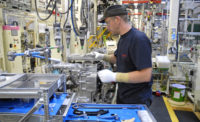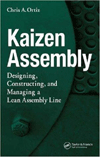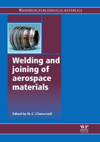New Skateboard EV Platform Is Aimed at Niche Manufacturers

SAINT COLUMB MAJOR, England—The British motor industry has a long tradition of low-volume sports car manufacturing. Over the decades, small factories in the British Isles have produced classic nameplates such as AC, Jensen, MG, Morgan and TVR.
“As we rapidly accelerate toward 2030, electrification is a major challenge for niche manufacturers,” says Neil Yates, founder and owner of Watt Electric Vehicle Co. “With low sales volumes, it is difficult for these businesses—whether start-ups or established brands—to invest in their own new specific EV technology and develop it in-house.”
Yates has come up with a solution. He recently unveiled a lightweight modular platform dubbed PACES (Passenger And Commercial EV Skateboard). The highly flexible chassis can support any low-to-medium volume manufacturer wanting to go electric, from makers of two-seat roadsters to large commercial vehicles.
“The niche vehicle industry faces a considerable challenge in the transition to an electric future,” explains Yates. “Low-volume manufacturers wanting to go zero-emission [have not been able to] buy a sophisticated, yet cost-effective electric vehicle platform off-the-shelf until now.”
PACES is a bonded aluminum platform specifically designed for low-volume production applications. It can be used on almost any size or shape of EV, from sports cars to buses, across front-wheel drive, rear-wheel drive and all-wheel drive configurations. It complies with all ISO regulations and European Small Series Type Approval crash standards.
“The key to PACES’ enormous capability is its structure system,” notes Yates. “Whereas large-volume aluminum skateboard concepts use bespoke, complex and expensive corner-castings, PACES is composed of lightweight extrusions. The flat, laser-cut pieces interlock and bond together through an innovation we call FlexTech.
“In this manner, PACES forms chassis that are low cost, extremely rigid and accurate, delivered to within 1 millimeter of variability across the whole platform, requiring little upfront investment in expensive tooling or post-assembly machining, further cutting manufacturing cost,” claims Yates.
The first production car to use PACES will be Watt Electric Vehicle’s own coupe that resembles a 1950s-era Porsche 356A. According to Yates, the 1950s-inspired, two-seat fixed head electric sports car will focus on driver involvement.
“[It will feature] near 50:50 weight distribution, a curb weight of less than 1,000 kilograms and a communicative chassis exhibiting carefully-honed ride, handling and steering characteristics,” adds Yates. “Its rear-mounted electric motor will be available in two power outputs, with a 40-kikowatt-hour battery.”
Looking for a reprint of this article?
From high-res PDFs to custom plaques, order your copy today!








